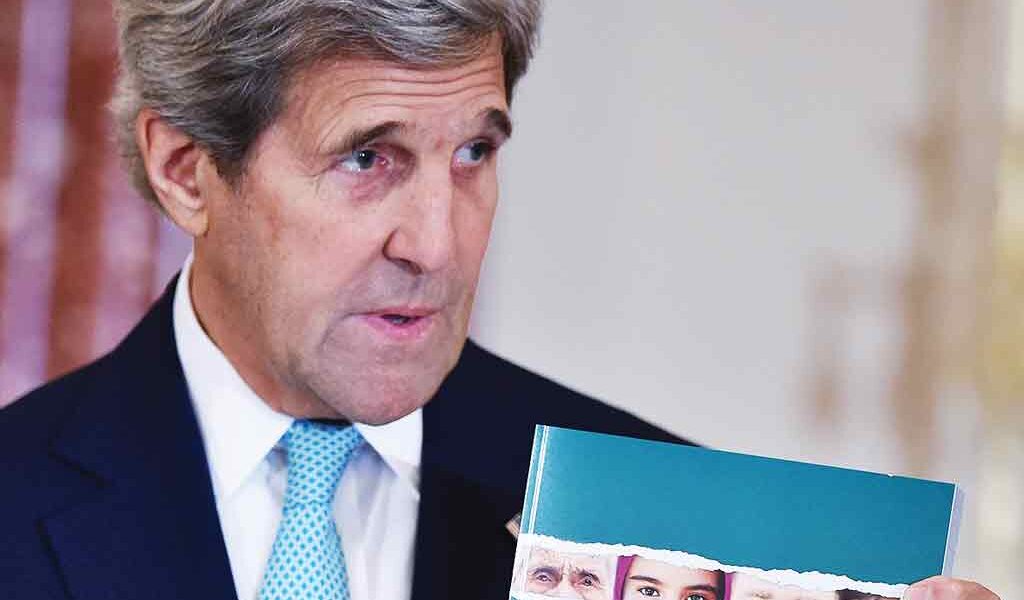It however says Botswana has made progress in investigating trafficking cases
QUEEN MOSARWE
Botswana has once again been named a source, transit and destination country for women and children subjected to forced labour and sex trafficking. A report by the U.S. Department of State on 2016 Trafficking in Persons Report (TIP) released last week states.
According to the findings of the report, susceptible persons to trafficking are unemployed women, the rural poor, agricultural workers and children. “Some parents in poor rural communities send their children to work for wealthier families as domestic servants in cities or in agriculture and cattle farming in remote areas, increasing their vulnerability to forced labour,” it reads in part. The report explains that young Batswana serving as domestic workers for extended families are at a risk of being denied access to education and basic necessities or subjected to confinement or verbal, physical, or sexual abuse, which are conditions indicative of forced labor. It reveals that officials confirmed to trafficking of adults and children of the San on private farms and cattle posts in the Western part of the country giving rise to forced labour.
The report further pinpoints to Batswana girls being exploited in prostitution within the country, including in bars and along major highways by truck drivers and that some women may be subjected to trafficking internally or transported from neighboring countries and subjected to sexual exploitation.
It pins the current situation on the country’s partial compliance with minimum standards for elimination of trafficking, despite having made significant efforts in that regard . “During the reporting period, the government investigated five trafficking cases and prosecuted seven traffickers under the 2014 Anti-Human Trafficking Act, in comparison with none reported the previous reporting period,” it reads. It adds that the government has however not convicted any traffickers. Furthermore, it states that government identified six trafficking victims and provided them food, basic assistance, including medical and psycho-social care and amenities.
Botswana is now placed on Tier 2, having moved up from last year’s placement of Tier 2 Watch List. Tier 2 is a list of countries whose governments do not fully meet the Trafficking Victims Protection Act’s minimum standards but are making significant efforts to meet those standards. “The government investigated five trafficking cases and prosecuted seven traffickers under the 2014 Anti-Human Trafficking Act, in comparison with investigating an unreported number of trafficking cases and obtaining no prosecutions the previous reporting period,” it reads in part, adding that the country increased anti-trafficking law enforcement efforts.
To this end, the report recommends that Botswana amend the anti-trafficking law to ensure sufficient and stringent penalties to restrict the ability of judges to impose fines in lieu of prison time when sentencing traffickers. Furthermore, it recommends that there be continued efforts to investigate, prosecute and convict traffickers using the 2014 Anti-Human Trafficking Act for both internal and transnational trafficking cases amongst others.
Reached for comment, Ministry of Defence, Justice and Security Manager for Trafficking in Person Madoda Nasha said they were pleased about the report’s findings and its acknowledgement of Botswana’s improvement. “The good thing is that where they could not find verifiable information or did not have information about a certain aspect, they noted it as speculation. In that way, the reader would be able to distinguish between speculation and a fact.”
Meanwhile, he said there was need to conduct a study about trafficking in Botswana to establish the extent of the problem and its causes. “As it stands, the extent of human trafficking not only in Botswana but the whole SADC region is not yet known and we are in the process of conducting a comprehensive research on the problem,” he said.
Nasha says countries ought to conduct their own researches on causes of trafficking. “ Poverty and lack of education are usually said to be the causes, but we need to look beyond that,” he said stating that they are other factors, for example in the case of Botswana which could be attributed to the problem such as the social fabric and traditional practices .

